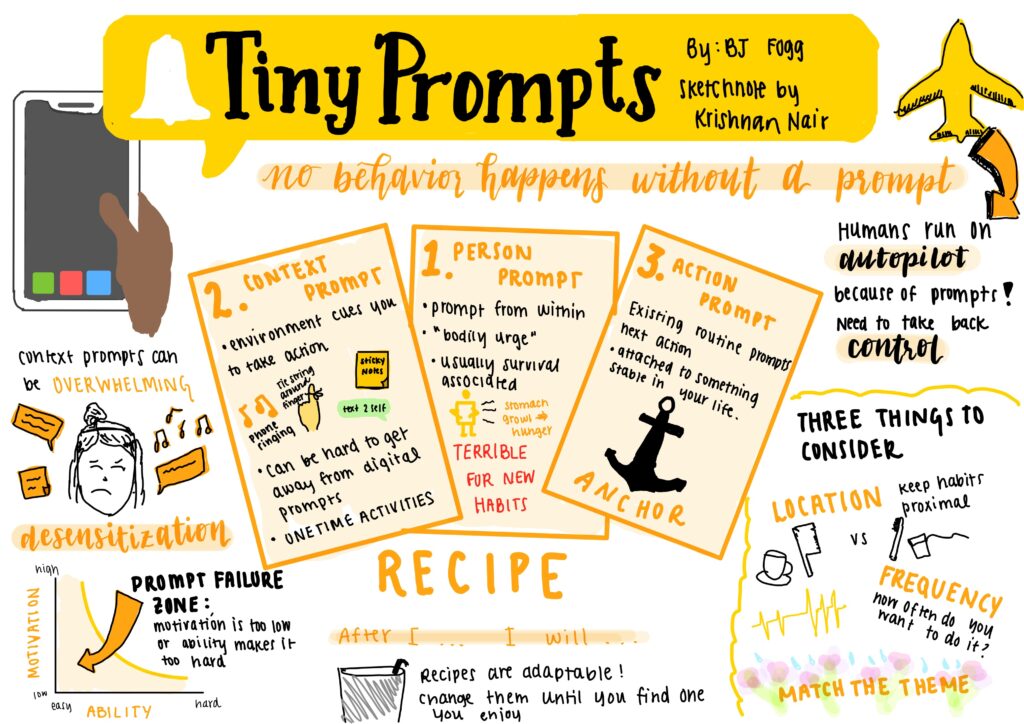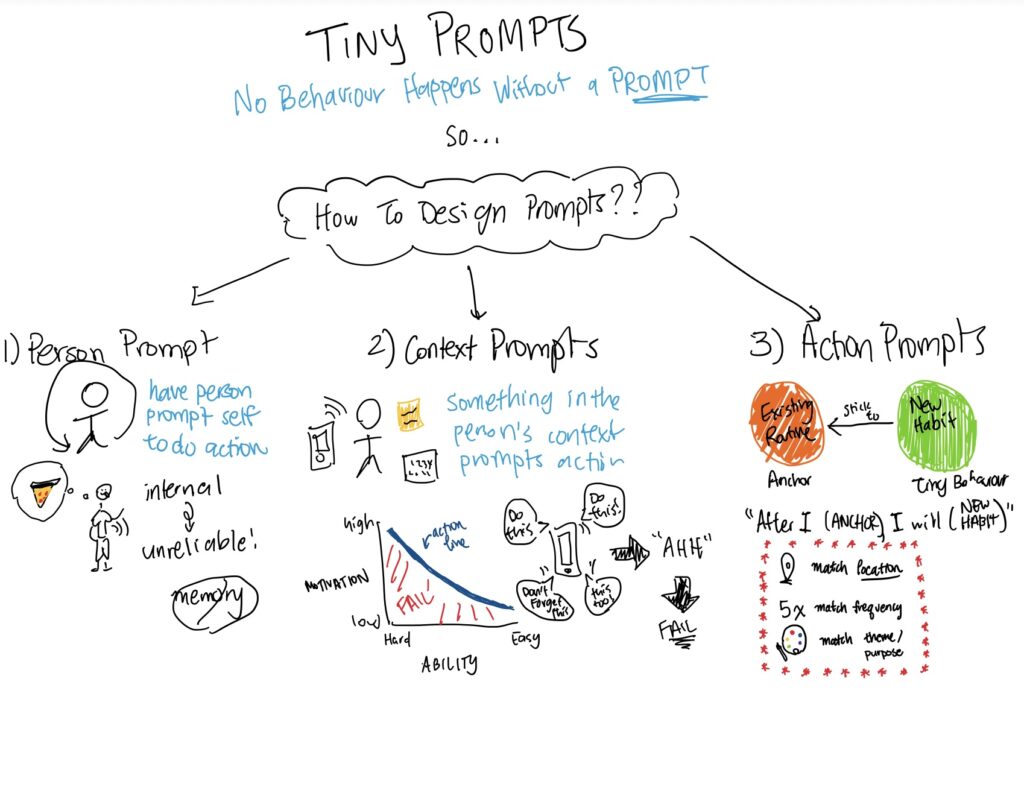This quarter, our team is researching habits around conversation starters and how they can impact self reflection and promote meaningful conversations. Namely, our goal is to design and build a product that helps users lead more interesting/profound conversations and build deeper bonds with anyone they speak to. Along with conducting literature reviews, our team analyzed multiple existing apps to learn more about the current solutions and compare them, in hopes of finding some key gaps or strengths to use in our own designs. In the section below, the individual analysis and synthesis of each app is presented, followed by an aggregate synthesis of all the apps.
-
- Honk: is a real-time social messaging app that allows users to message their friends in a more casual way. Honk adds a unique take to virtual social interaction by adding temporality to text messaging: only one message can be saved by each user at any point in time in a conversation. This is similar to chatting with someone over a google doc, where your text is updated in live time, and every time you write a new line, the prior line is deleted. Honk is extremely popular, with a strong Twitter following, and almost five thousand reviews on the iOS app store. Honk allows uploading of user contacts to quickly add all their friends on the app, and allows personalization of interactions by supporting emojis, live drawing, audio, and images, of which all are ephemeral like the text. We think this app is great in that it motivates more genuine and less curated conversation by taking away the permanence of messages, similar to how Snapchat created a more casual and less curated environment than their competitor, Instagram, by virtue of their images being ephemeral. But, a drawback is that even though conversation may be less curated, Honk does not intentionally help users generate more meaningful conversations and elevate the quality of conversation.
-
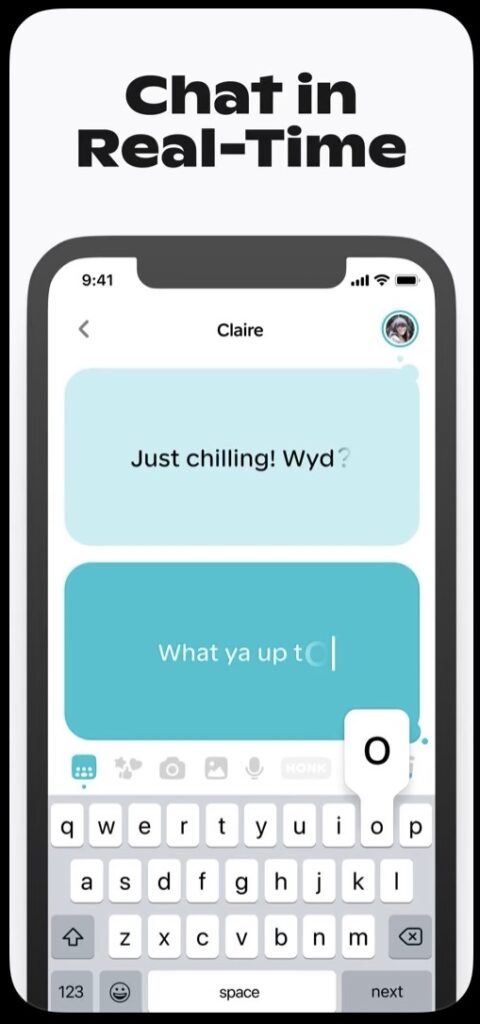
Honk main chat screen -
- Longwalks: is a social media app that allows users to discover new things about themselves and friends through daily prompts. Longwalks is rather popular, with a 4.8 rating and about one thousand reviews on the iOS store. The app provides different categories of questions that a user can look at daily, allowing users to publish their answers to the public. Users can see what all of their friends answered for the daily question. Although this app encourages daily reflection for users and their friends, it has no habit-forming cues such as notifications to prompt users to answer their daily question. Also, Longwalks provides breadth in seeing all of your friends’ answers, but lacks depth in that the questions are short and answers are typically short due to friction of having to type on a mobile phone. This would be more effective if users were able to reflect on these questions in-person verbally, or through audio/video.
- Holsom: is a conversation starter app. Holsom is similar to Gather (point 2) in that its main feature provides a large deck of conversation starters, and it has categorization that appeals more to the mood rather than social context, such as “Deep Stuff” and “Funny Bone”. Holsom’s strength is that they allow users to create their own collections of conversation starters, essentially organizing different cards into playlists and bookmarks. This allows users to reflect on and reuse the questions they thought were most interesting or effective for enhancing their conversation. A key drawback is that each deck is paywalled, and users must purchase decks to use them, beyond the first two free ones. Another large drawback is that there are few categories and cards: a total of 7 categories and a total of 286 prompts.
-
- Fabriq: is a relationship-building app that intends to build better social habits in users, pushing them to get intentional about their relationships. Fabriq main features allows users to see a list of all of their friends, and provides functionality to set connection goals with each friend (e.g. setting a connection frequency or catch-up dates). The app is also not well-known, with only 120 iOS app store reviews. Fabriq also provides a calendar to keep track of all the connection dates, and provides insights on social habits, such as when you are texting a friend disproportionately more than calling them. Lastly, Fabriq provides meme conversation starters, giving preset memes for users to send to their friends to start conversations. Fabriq’s advantages are that it truly centralizes and organizes your conversations with friends, allowing users to be sure they are interacting with everyone they want. A direct drawback is that it gamifies friendships, which may actually decrease the genuinity behind a relationship. Also, Fabriq provides motivation for users to talk to their friends more consistently, but does not do well in enhancing the conversation, only supporting a meme conversation starter feature.
-
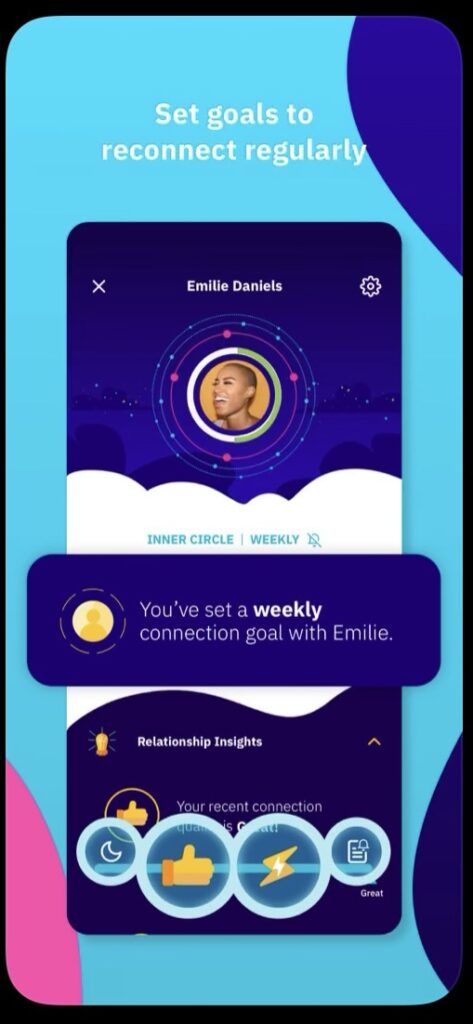
Fabriq relationship recurrence setter screen -
- Closer to you: is a relationship-building app for couples. This app provides new discussion topics every week designed by psychologists, and is meant to be played by setting the phone on a table between a couple, and iterating through the cards. Notably, this app is dominated by “Asya”, an AI, which the app indicates can understand emotions in the user’s voice and gives personalized topics to improve relationships. Asya provides analytics on how a couple interacts, showing their listening to speaking ratio, and provides a visual of a growing flower as a conversation continues to show that a couple’s relationship is growing. A positive that may come from this is that users have more personalized insights about their relationships and relationship growth. Yet, a key drawback of this app is the large privacy concerns, as the AI bot accesses biometric features of the voice, as claimed by the app! This is concerning, even if the app description mentions they do not store the content of the conversation, as they still may be storing biometric data.
- BetterThanSmallTalk.com is a website that provides 3 key products for improving friendships: a conversation topic calendar poster, a conversation topic card game, and a biweekly newsletter providing “inspiring tools to rethink and improve [users’] approach to friendship”. The calendar provides a different topic to use daily and is intentionally generalized to be used with friends, coworkers, partners, family, or anyone else, and is shipped to users as a physical product. The card game is a digital set that is similar to those from the above mobile apps, such as Gather and Holsom. BetterThanSmallTalk’s pros include having a newsletter, which provides a natural biweekly cue for users to read and improve their friendships. Also, their calendar is a physical product, which provides a unique solution to the daily prompt compared to other mobile apps and websites. A weakness of BetterThanSmallTalk is that their key product, the calendar and card sets, in virtue of being a physical paper set or a pdf, has no automated prompts to cue the user to use the product, such as notifications or reminders.
- Gather: is a conversation-starter app that presents users with different categories of conversation starter cards. Gather is not a well-known app, with only about 100 ratings on the iOS app store, but has strong reviews with 4.5 stars. Gather’s strength is in having a large collection of conversation starters (about 1000), along with strong categorization of conversation starters, which helps users cater to their specific social context (e.g. with family, friends, couples, etc.) Gather also has more abstract categories such as “Teammates”, “Mindfulness” and “Philosophy”. Gather has a few drawbacks. First, a user must choose a category to receive a conversation starter, which may cause a barrier to usage if a user and their friends have to think about a topic. We believe this is almost paradoxical to the mission of conversation starters. Another drawback is that there is no social component or personalization of conversation starters, as users do not receive cards catered to their preferences, and cannot receive any insights about historicals or other user’s questions on the app.
-
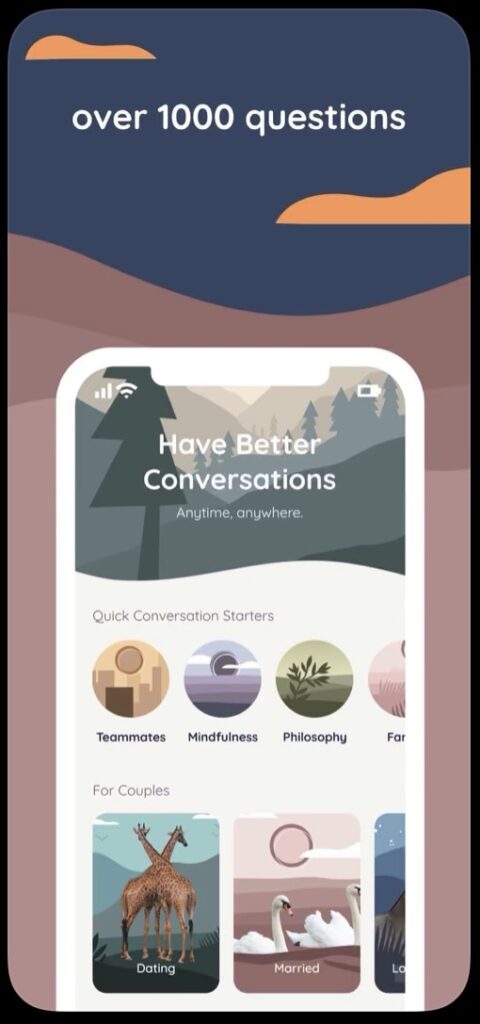
Gather category picker screen - Presence: Presence provides conversation starters to deepen connections between people at any family or friend gathering. Similar to some of the other apps discussed above, this app allows users to select from a predefined list of categories and then provides a deck of questions for them to choose from. The idea of the app would be that one person has the app on their phone and they are able to pose the questions to their friends and family. The app argues that the questions provided lead to more meaningful conversations and overall interactions between participants. However, there is no prompting system to help users come back to the app or no tracking of progress or change. It is when you can’t think of any other conversation starters in a social setting. Users are likely to go through several of these at a time.
In order to classify the current market of applications related to our idea, we thought it would be helpful to generate a comparative matrix mapping activation vs. intervention. Here, activation is defined by how much effort users must put into the activity they are performing (choosing a question to ask, setting up a date with a friend, etc.), and intervention is defined by how effective the product/service is at incentivizing a meaningful connection. We think this is an effective matrix for our research because building deep connections is a positive habit (which is harder to induce change or intervene), so activation and intervention potential are crucial parameters. Ideally, we would like to place our product in the low motivation and high intervention quadrant where we would require little effort from the user to make a large impact on their connections.
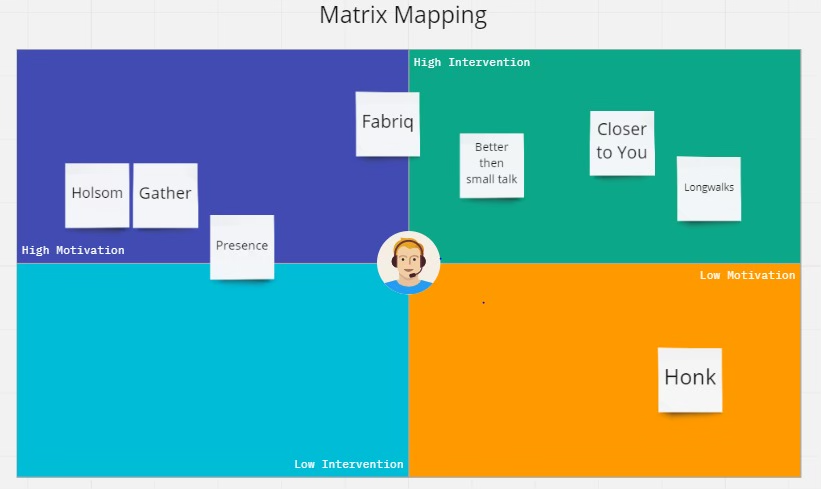
Above is the mapping of all the analyzed products. We see a few themes here – first, there are no low intervention and high activation products – which is great! Furthermore, the highest intervention products (Longwalks, CloserToYou, BetterThanSmallTalk and Fabriq) also seem to have the lowest motivation (aside from Honk). We presume this likely has to do with the spontaneous nature of conversations. In order to have a deep impact on conversations, we need to buy into the spontaneity and not hide from it. Two interesting products that would be worth looking into are Honk and Fabriq as they both rank highest in low activation and high intervention respectively but have not managed to find a good balance between the two.
An interesting takeaway here is that apps made a tradeoff between intervention and activation. We are interested in exploring how we could maintain extremely high intervention, such as the case of Fabriq, but simultaneously provide low activation through creating a design and feature set that allows users to seamlessly build stronger connections and greater self reflection through conversation.

